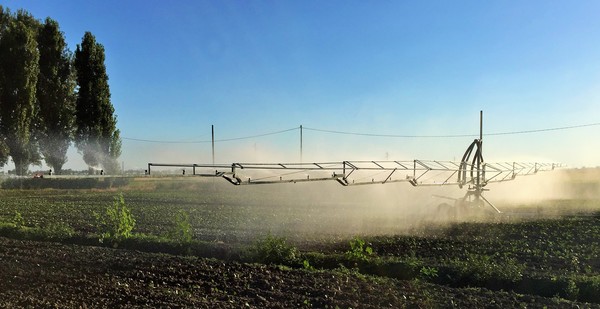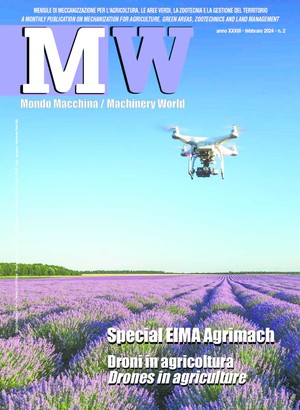
Water and agriculture, a key theme at Agriumbria
Drought and climate change bring the issue of water management in agriculture back to the forefront. From satellite data analysis to precision farming technologies, now ripe for large-scale application, here are all the techniques for increasing water supply and limiting wastage
Last summer's prolonged drought and climate change have made it even more evident what a precious commodity water is and how its shortage can damage crops. "But intervention strategies must be integrated," says Francesca Todisco, Professor of Agricultural Hydraulics and Hydraulic-Forestry Restructuring at the University of Perugia. "That is, they must take into account soil conservation, hydrogeological risk, the reduction of pollutants, and the safeguarding of ecosystems. Todisco was responsible for the presentation at EIMA International of a report on sustainable strategies and technologies for managing water resources in agriculture. A report illustrated at the presentation of the 54th edition of Agriumbria, the national exhibition of agriculture, livestock farming and food scheduled from 31 March to 2 April 2023. The theme, which will be highlighted at the Bastia Umbra exhibition, is highly topical. Suffice it to say that in recent months, drought - according to Coldiretti's estimates - has caused losses amounting to 10% of Italian agrifood production, for a value exceeding 6 billion euros. "We wanted to focus on one of the fundamental themes for the challenges of the future in agriculture," explains Stefano Ansideri, president of Umbriafiere. So what is to be done? According to Todisco, first of all we need adequate planning, which takes into account the complex nature of the problem. Therefore, the increase and enhancement of supply systems, the protection of the availability and quality of water resources, the modernisation of irrigation systems, and education on the conscious use of water are fundamental. Monitoring distribution networks to counter leakage is also crucial. Furthermore, the dissemination of management techniques based on the principles of precision irrigation is indispensable. "And precisely with regard to precision agriculture," Todisco points out, "the technology is ripe for application on a large scale". The hi-tech techniques available include the analysis and processing of satellite data to identify and characterise water bodies.








